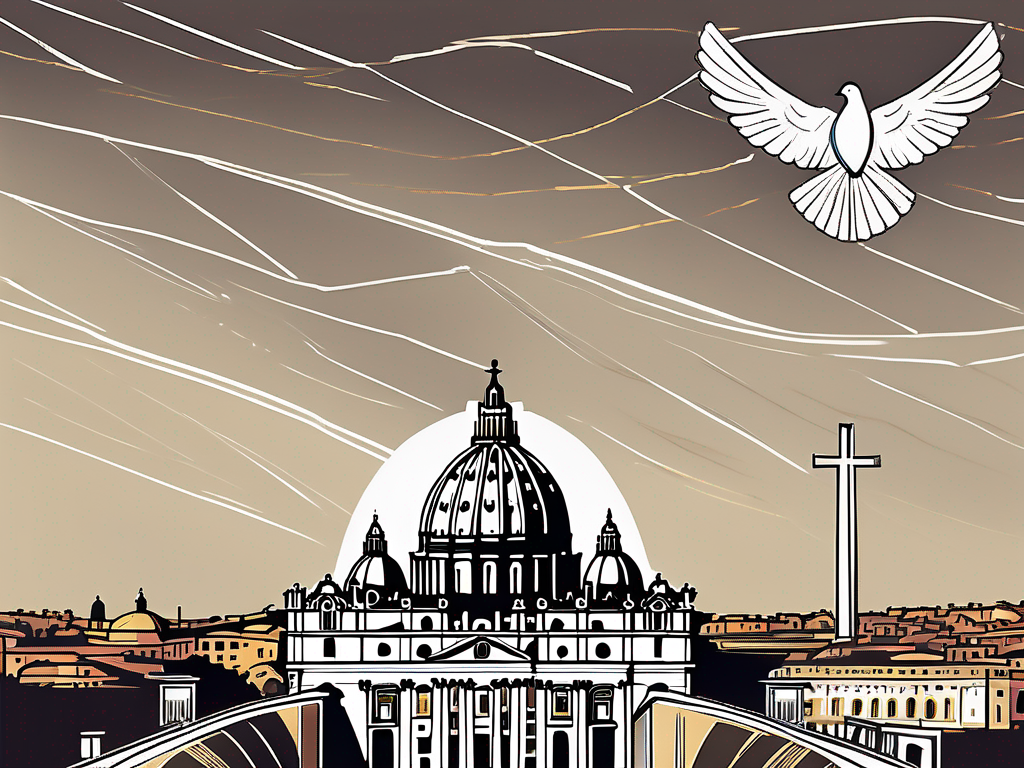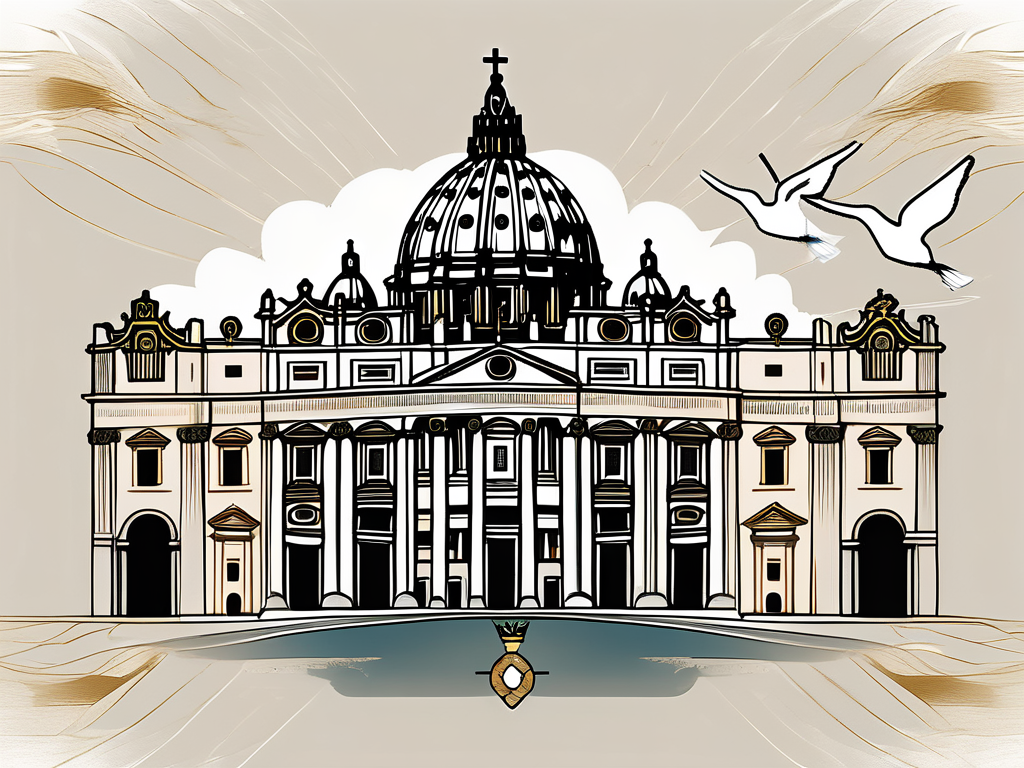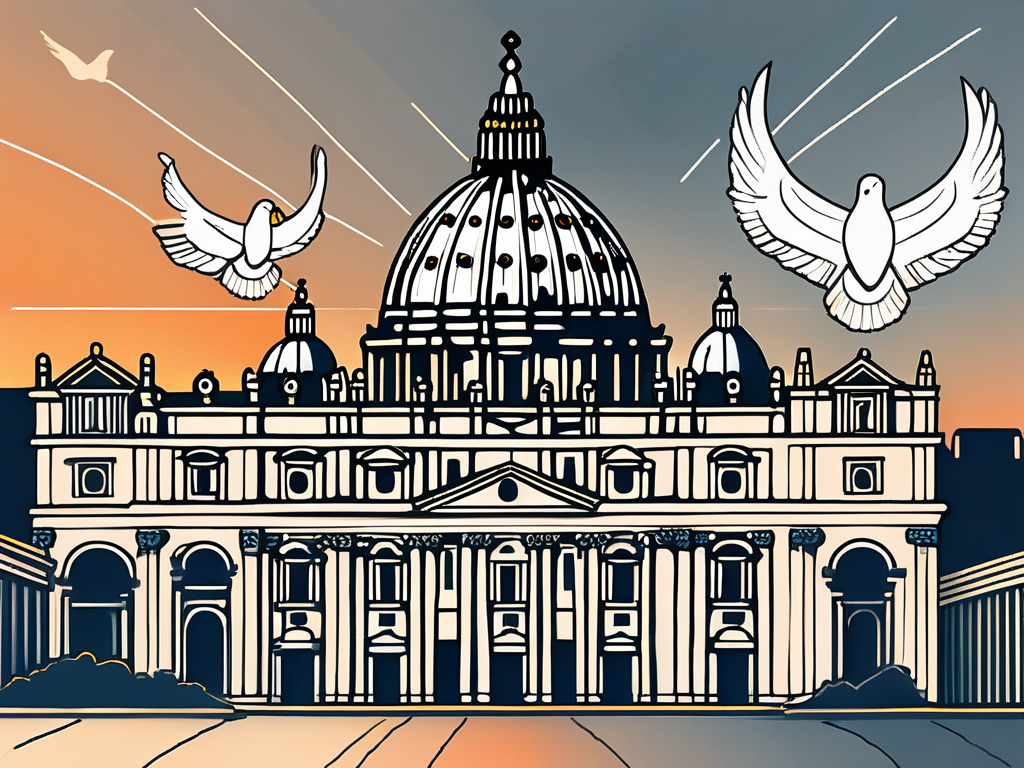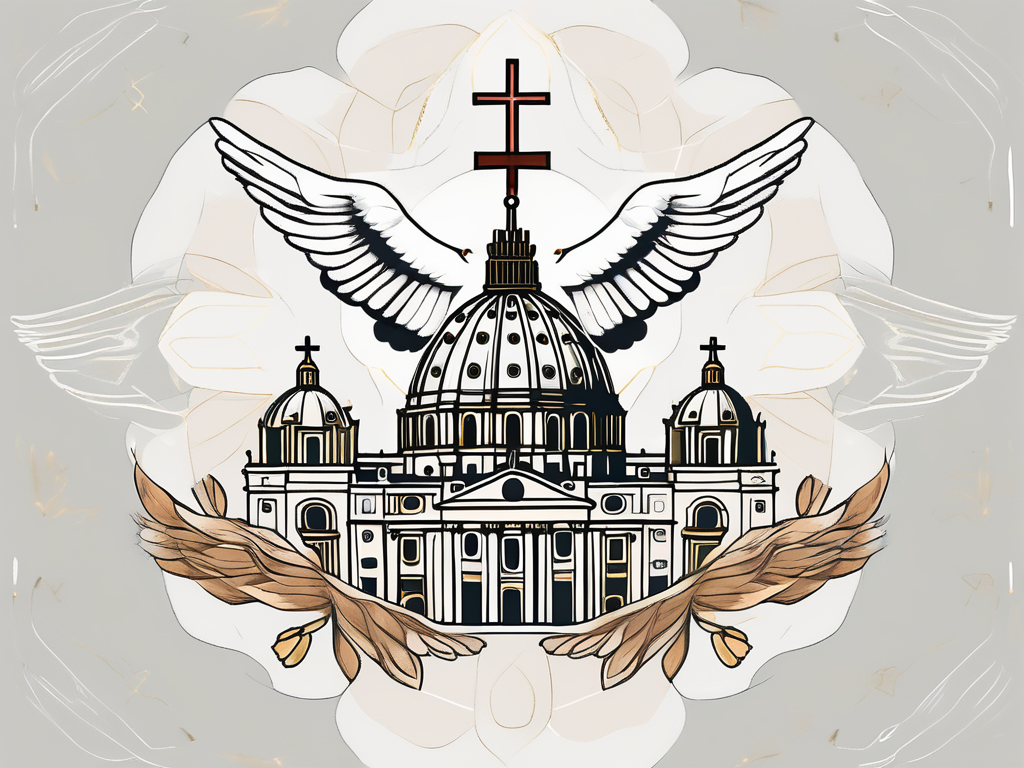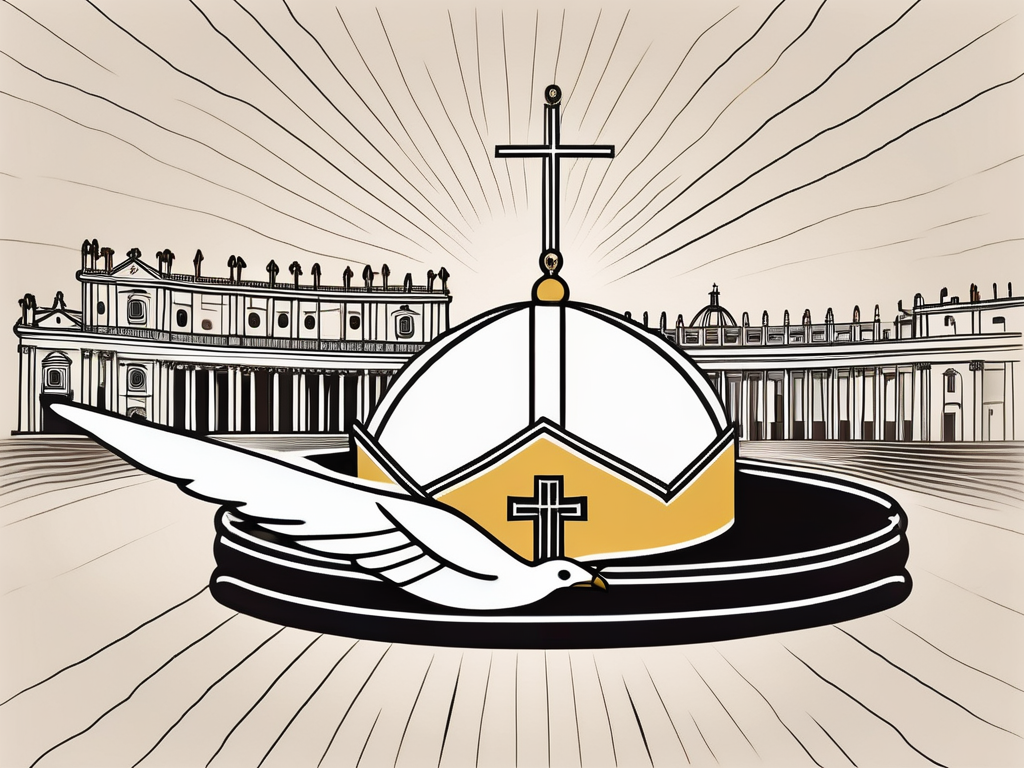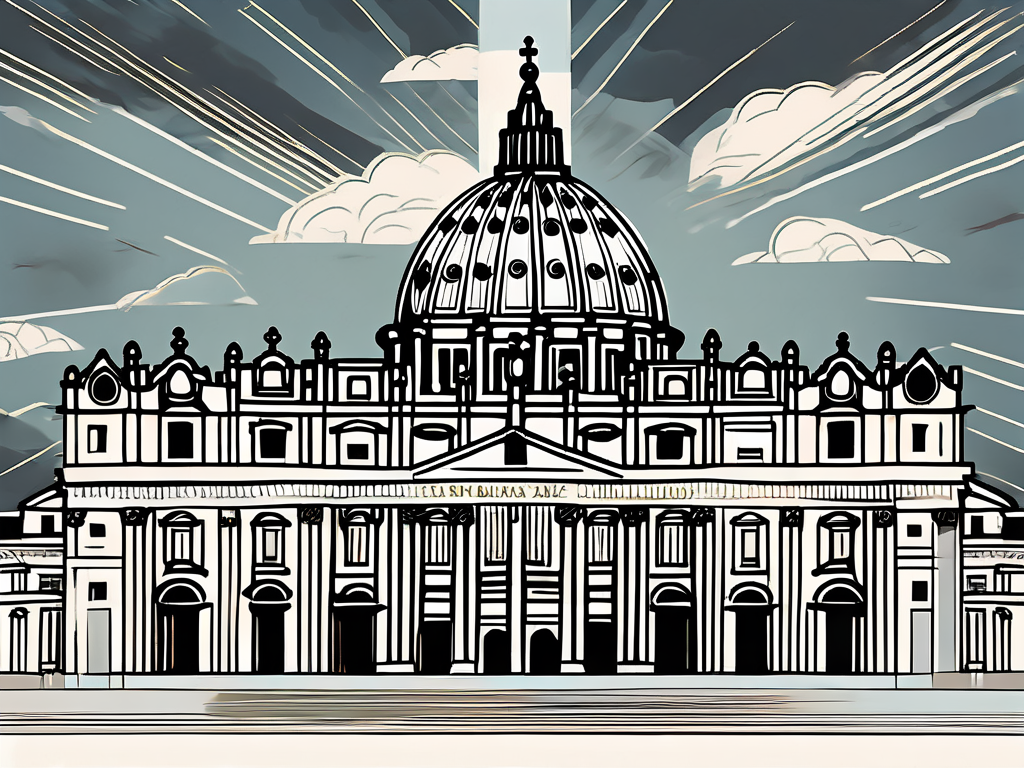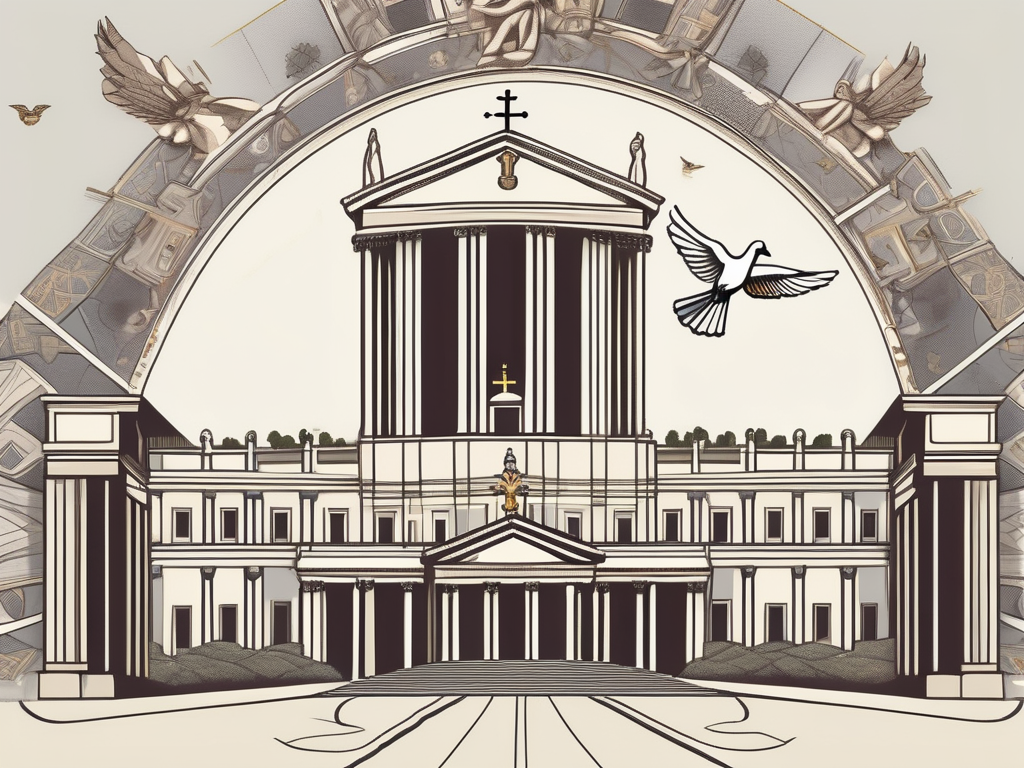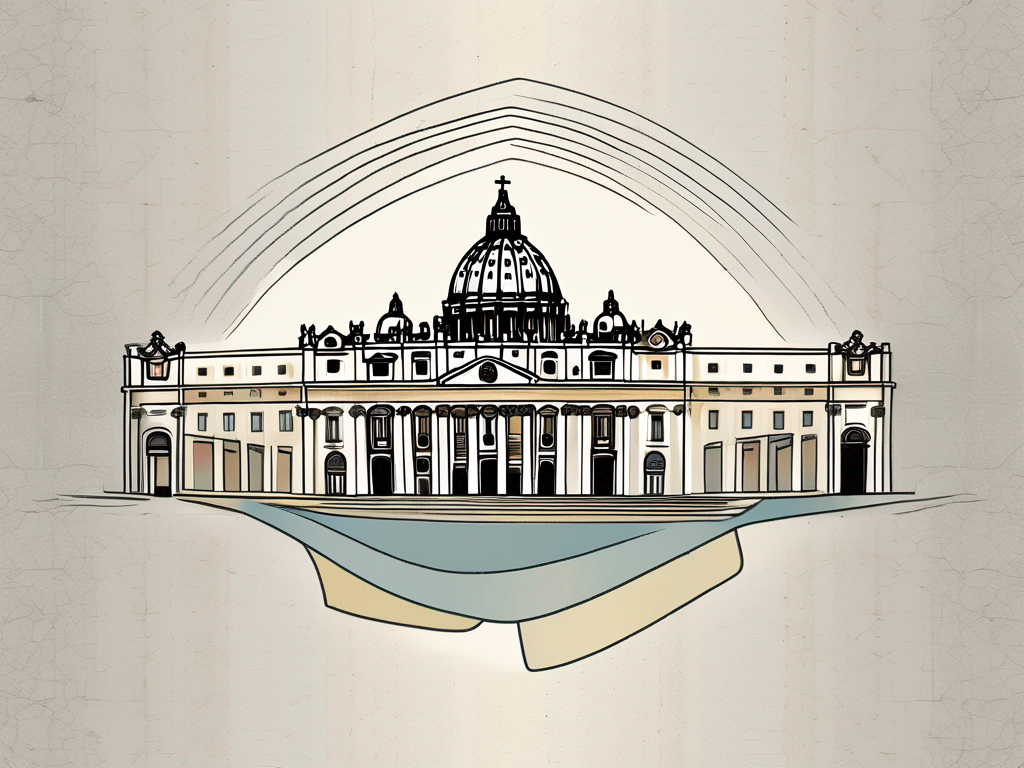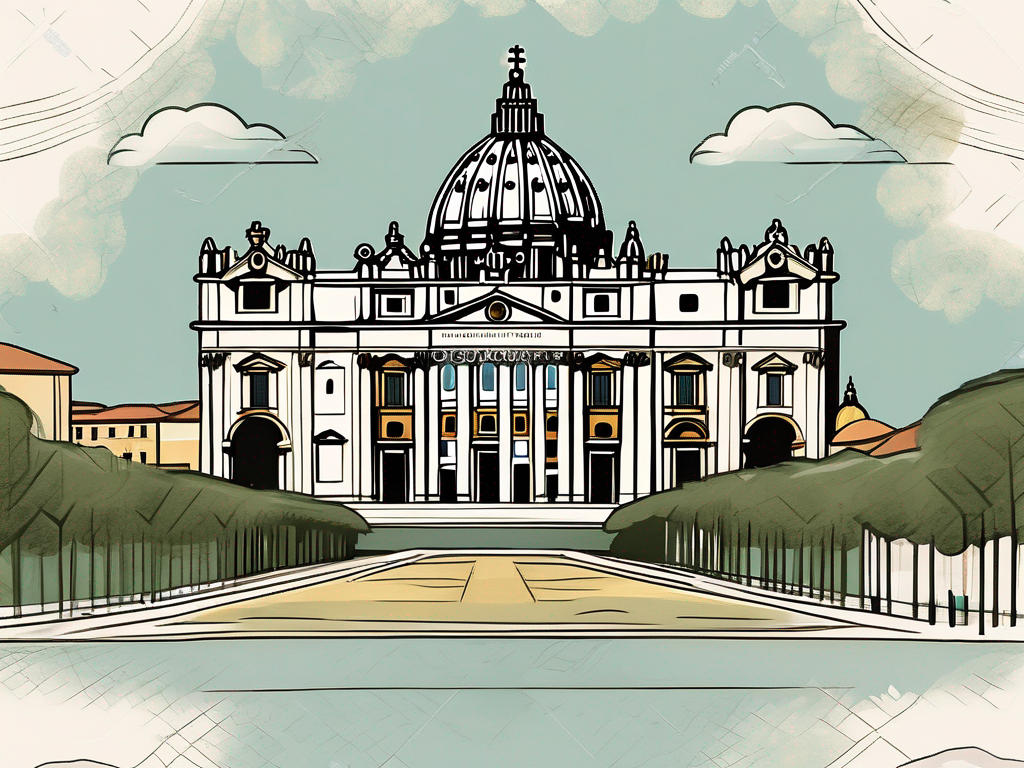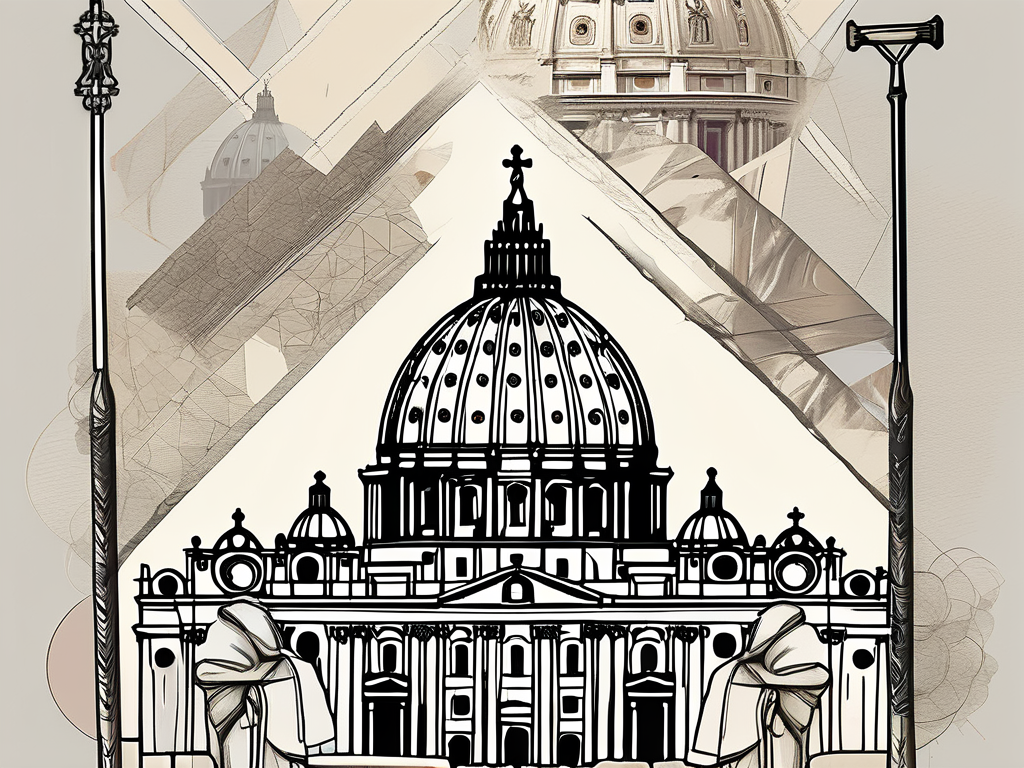Pope John VIII, also known as Pope Johannes VIII or Pope Joan, was a significant figure in the history of the Catholic Church. His life and legacy continue to be studied and discussed by scholars and religious historians. In this article, we will delve into the various aspects of his life, from his early years to his major contributions, and explore the lasting impact he had on the church.
Early Life and Education of Pope John VIII
Pope John VIII’s journey began with his humble beginnings and his thirst for knowledge. His family background played a crucial role in shaping his character and values.
Family Background and Childhood
John VIII was born into a devout Catholic family, with a long lineage of religious leaders. His parents instilled in him a deep sense of faith and the importance of serving God and the Church. Growing up, he witnessed the power of prayer and the impact religious teachings had on his community.
As a child, John VIII would often accompany his parents to church, immersing himself in the rituals and traditions of Catholicism. He would listen intently to the sermons delivered by the priests, captivated by their wisdom and eloquence. These early experiences planted the seeds of his future vocation.
John VIII’s family also emphasized the value of education. They believed that knowledge was a gateway to spiritual enlightenment and personal growth. His parents encouraged him to pursue his studies diligently, understanding that a strong educational foundation would be essential in his future endeavors.
Academic Pursuits and Religious Education
Driven by a desire to deepen his understanding of theology, John VIII devoted himself to his studies. He excelled academically, delving into various religious texts and engaging in scholarly debates. His thirst for knowledge was insatiable, and he sought out renowned theologians and scholars to expand his understanding.
During his academic pursuits, John VIII developed a reputation for his intellectual prowess and his ability to articulate complex theological concepts. He would spend hours engrossed in deep contemplation, grappling with the profound questions of faith and spirituality.
His religious education was not limited to the confines of a classroom. John VIII actively sought out opportunities to engage with the wider religious community. He would attend lectures and seminars, eagerly participating in discussions and sharing his own insights. Through these interactions, he developed a network of like-minded individuals who would later become his trusted confidants and advisors.
John VIII’s dedication to his studies and his unwavering commitment to his faith did not go unnoticed. His reputation as a learned and devout individual spread far and wide, reaching the ears of influential Church leaders. They recognized his potential and saw in him the qualities of a future leader.
As John VIII continued his academic pursuits, he also took on various responsibilities within the Church. He would assist the priests during religious ceremonies, gaining firsthand experience in the rituals and practices of Catholicism. These practical experiences further deepened his connection to the Church and solidified his calling.
With each passing year, John VIII’s knowledge and understanding of theology grew, preparing him for the significant role he would eventually assume. His journey was marked by a relentless pursuit of knowledge, a deep devotion to his faith, and an unwavering commitment to serving God and the Church.
Ascension to Papacy
John VIII’s ascension to the papacy was a pivotal moment in his life and in the history of the Catholic Church. It marked the beginning of a remarkable journey filled with challenges and triumphs.
The Conclave and Election
After the death of Pope Benedict III, the conclave convened to elect a new leader. The atmosphere in the Sistine Chapel was tense as the cardinals gathered to deliberate and choose the next pontiff. The weight of responsibility hung heavy in the air as they considered the future of the church.
John VIII’s reputation as a learned and devout individual had reached the ears of the cardinals. His wisdom and deep understanding of theology made him a strong candidate for the papacy. However, it was not just his intellectual prowess that set him apart. His humility and unwavering commitment to the church resonated with his fellow clergy, leading to his election as the pontiff.
As the news of his election spread, the faithful rejoiced, hopeful for a new era under the leadership of John VIII. The conclave had chosen a man of integrity and compassion, someone who would guide the church through troubled times.
Challenges and Triumphs in the Early Years
As pope, John VIII faced numerous challenges, both within the church and in the broader political landscape. The world was a tumultuous place, with power struggles and conflicts threatening to tear apart the fabric of society. Yet, John VIII remained steadfast in his mission to bring peace and unity to the Catholic Church.
One of the greatest challenges John VIII faced was the rise of heresies and schisms within the church. False teachings and divisions threatened to undermine the unity of the faithful. With his deep knowledge of theology and his gift for persuasive speech, John VIII tirelessly defended the true teachings of the church, refuting heretical claims and working towards reconciliation.
Outside the church, political turmoil added another layer of complexity to John VIII’s papacy. The Holy Roman Empire, the Byzantine Empire, and various other kingdoms vied for power and influence. John VIII skillfully navigated these treacherous waters, using diplomacy and negotiation to maintain peace and protect the interests of the church.
Despite the challenges, John VIII’s papacy was not without triumphs. His ability to bring disparate factions together earned him admiration and respect from both friend and foe. His efforts to promote unity and foster dialogue between different religious groups laid the foundation for future ecumenical movements.
Furthermore, John VIII’s commitment to social justice and the well-being of the poor and marginalized endeared him to the masses. He tirelessly advocated for the rights of the downtrodden, using his position of influence to bring about positive change in society.
As the years went by, John VIII’s reputation as a wise and compassionate leader grew, and his impact on the Catholic Church became undeniable. His papacy was a testament to his unwavering faith and his dedication to the service of God and humanity.
Major Contributions and Reforms
Despite the challenges he faced, Pope John VIII made significant contributions to the Catholic Church, leaving an enduring impact on the faith and its followers.
Pope John VIII’s reign was marked by numerous achievements and reforms that shaped the course of the Catholic Church. His visionary leadership and unwavering commitment to the faith propelled him to undertake various initiatives that would have a lasting impact on the Church and its followers.
Diplomatic Achievements
John VIII possessed a remarkable talent for diplomacy and negotiation. He utilized these skills to foster alliances with secular authorities and forge diplomatic relationships with neighboring regions. These efforts not only strengthened the church’s position but also contributed to peace and stability in the region.
One of his most notable diplomatic achievements was his successful mediation between warring factions in a long-standing conflict. Through his tireless efforts, Pope John VIII was able to bring about a peaceful resolution, saving countless lives and restoring harmony among the conflicting parties.
Furthermore, his diplomatic prowess allowed him to establish strong ties with influential leaders of the time. By cultivating these relationships, Pope John VIII secured the support and protection of powerful rulers, ensuring the safety and prosperity of the Church and its followers.
Theological Contributions and Controversies
In addition to his diplomatic achievements, Pope John VIII also made notable theological contributions. However, his progressive ideas sometimes stirred controversy among more conservative members of the clergy. He engaged in intellectual debates, pushing the boundaries of theological understanding and challenging established beliefs.
One of his most significant theological contributions was his emphasis on the importance of inclusivity and compassion within the Church. Pope John VIII advocated for a more inclusive approach, welcoming individuals from diverse backgrounds and promoting dialogue and understanding among different religious communities.
However, his progressive stance on certain theological matters led to heated debates and disagreements within the Church. Some conservative members of the clergy viewed his ideas as a departure from traditional teachings and raised concerns about the potential dilution of the Church’s core principles.
Despite the controversies surrounding his theological contributions, Pope John VIII’s unwavering commitment to intellectual discourse and pursuit of truth paved the way for future theological advancements within the Catholic Church.
In conclusion, Pope John VIII’s reign was characterized by his remarkable diplomatic achievements and theological contributions. His visionary leadership and unwavering commitment to the faith left an indelible mark on the Catholic Church, shaping its course and inspiring future generations of believers.
Pope John VIII and the Church Politics
Throughout his papacy, Pope John VIII faced numerous challenges related to church politics. He navigated these internal struggles with determination and a commitment to keeping the church unified.
Relations with Secular Authorities
John VIII recognized the importance of maintaining strong relationships with secular authorities. He skillfully balanced the interests of the church and those of the ruling powers, often acting as a mediator in disputes and conflicts.
Internal Church Affairs and Conflicts
As is often the case in religious institutions, internal conflicts and power struggles emerged during Pope John VIII’s papacy. These challenges tested his leadership and required him to make difficult decisions. Through his steadfastness and wisdom, he managed to navigate these rough waters, preserving the unity of the church.
The Final Years and Death of Pope John VIII
Like all mortals, Pope John VIII faced his mortality. In his final years, he grappled with health issues and made significant decisions as he prepared for the inevitable.
Health Struggles and Last Acts
Towards the end of his papacy, Pope John VIII battled with declining health. Despite this, he continued to fulfill his duties to the best of his abilities, attending to matters of the church and ensuring a smooth transition for his successor.
Circumstances and Aftermath of His Death
Upon his passing, Pope John VIII left behind a legacy that continues to be studied and revered. The circumstances and aftermath of his death brought about periods of mourning and reflection within the Catholic Church, as well as an appreciation for his contributions and leadership.
The Enduring Legacy of Pope John VIII
The life of Pope John VIII was one of commitment, intellectual pursuit, and leadership. His contributions to the Catholic Church and his impact on theology and diplomacy continue to shape the church’s history and its interactions with the world. His legacy serves as an inspiration for future generations of religious leaders, reminding us of the importance of compassion, knowledge, and diplomacy.
